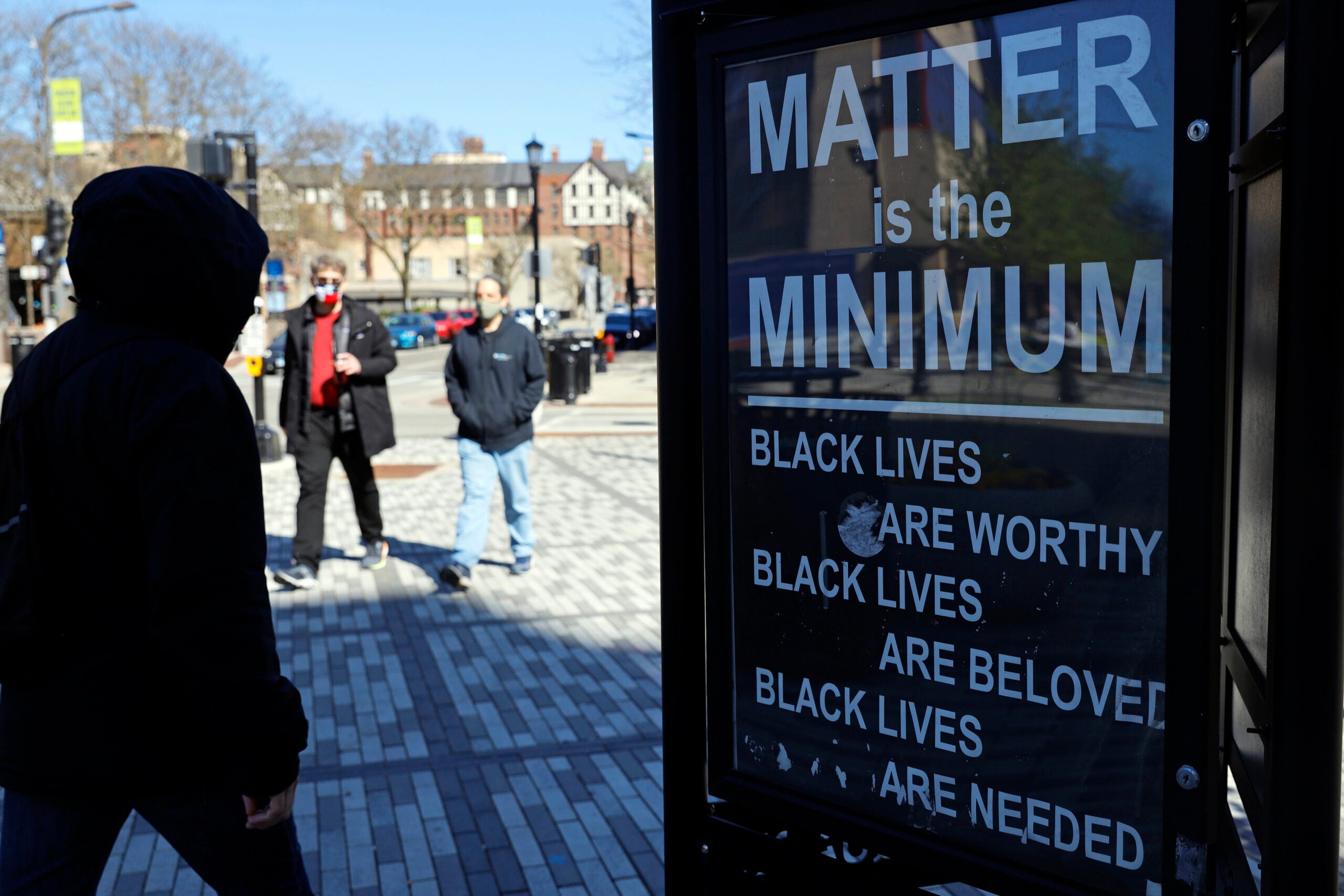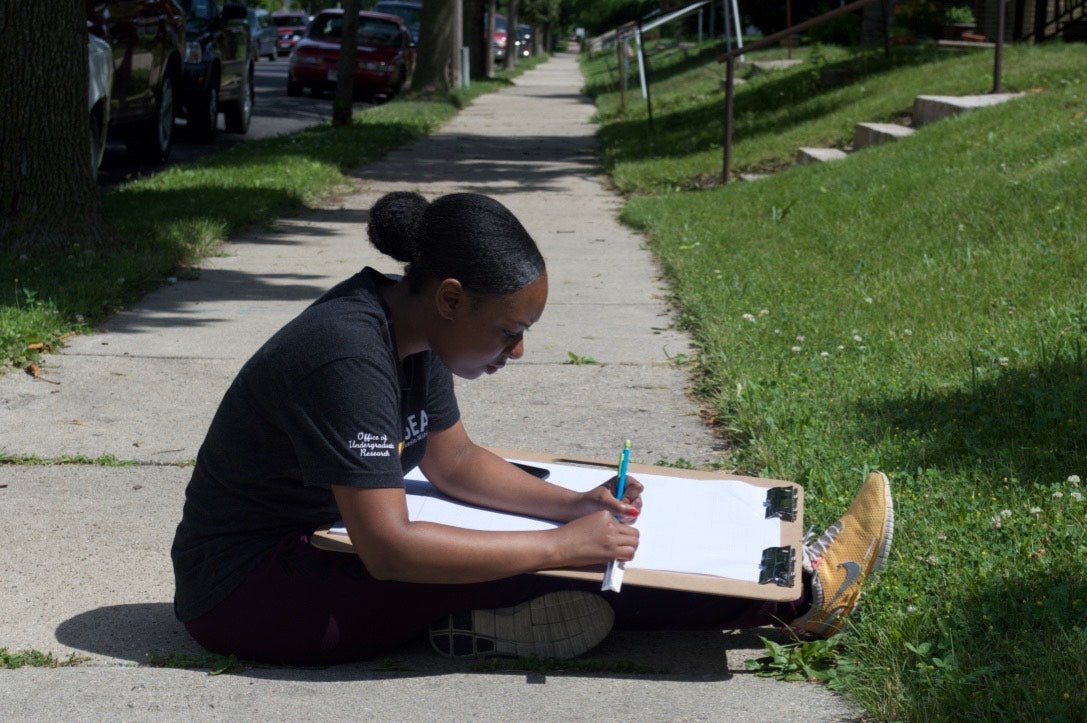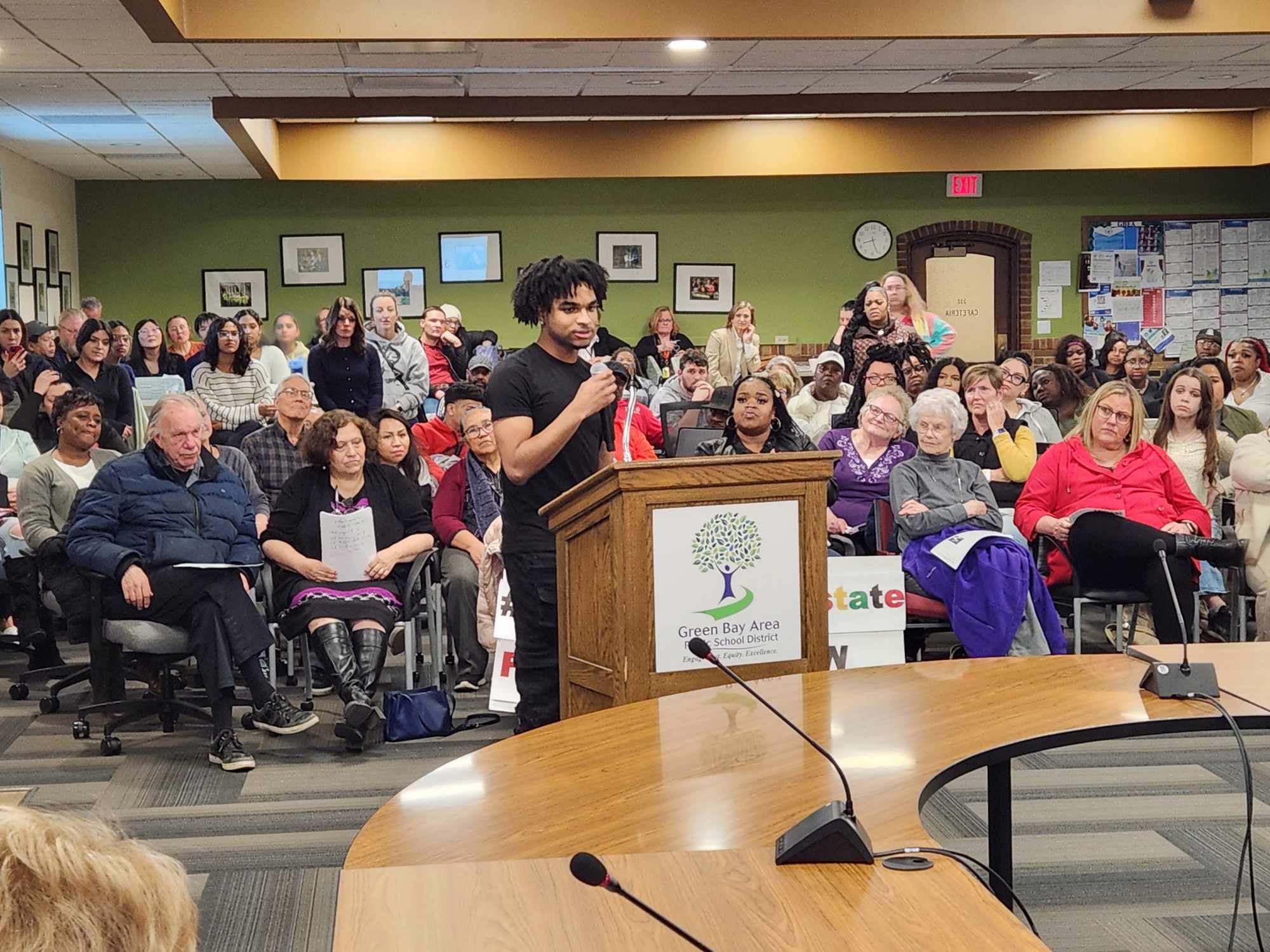Reggie Jackson, a writer for the Milwaukee Independent and the former head griot, or oral historian, at America’s Black Holocaust Museum in Milwaukee, has a long history of military service in his family stretching back to the Civil War.
But when two of his uncles who served in World War II returned to their home state of Mississippi, they found their veteran status wasn’t enough to reap the benefits of the GI Bill passed in 1944.
This is because Jackson’s uncles were Black.
Stay informed on the latest news
Sign up for WPR’s email newsletter.
The Servicemen’s Readjustment Act provided veterans with financial aid to reduce the possibility of a post-World War II depression. But Jackson said that two components of the GI Bill — receiving free college tuition and attaining home loans under the VA Guarantee Home Loan Program — were not available to his uncles at the time.
“It just didn’t work out that way, because the federal government allowed the states to control the allocation of both programs,” Jackson said. “It’s just unfortunate.”
In many southern states like Mississippi, Black soldiers were denied access to these wealth-building programs. And when it came to college, many were denied the opportunity to attend southern state schools because of segregation. Only 12 percent of Black veterans born between 1923 and 1928 were enrolled in college programs, and on average spent fewer months in the programs than white veterans.
[[{“fid”:”1568621″,”view_mode”:”embed_portrait”,”fields”:{“format”:”embed_portrait”,”alignment”:”right”,”field_image_caption[und][0][value]”:”%3Cp%3EReggie%20Jackson%E2%80%99s%20great-grandfather%20Ed%20Diltz%20is%20seen%20with%20his%20grandmother%20Sallie%2C%20in%20the%20late%201920s.%20Diltz%E2%80%99s%20sons%20Ervin%20and%20Grafton%20served%20in%20World%20War%20II%2C%20and%20two%20other%20sons%2C%20Frank%20and%20William%2C%20served%20in%20the%20Vietnam%20War.%20In%20many%20southern%20states%2C%20Black%20soldiers%20such%20as%20Ervin%20and%20Grafton%20Diltz%20were%20denied%20access%20to%20the%20GI%20Bill%2C%20which%20offered%20free%20college%20tuition%20to%20veterans.%20%3Cem%3EPhoto%20courtesy%20of%20Reggie%20Jackson%3C%2Fem%3E%3C%2Fp%3E%0A”,”field_image_caption[und][0][format]”:”full_html”,”field_file_image_alt_text[und][0][value]”:”Reggie Jackson’s great-grandfather Ed Diltz is seen with his grandmother Sallie, in the late 1920s.”,”field_file_image_title_text[und][0][value]”:”Reggie Jackson’s great-grandfather Ed Diltz is seen with his grandmother Sallie, in the late 1920s.”},”type”:”media”,”field_deltas”:{“1”:{“format”:”embed_portrait”,”alignment”:”right”,”field_image_caption[und][0][value]”:”%3Cp%3EReggie%20Jackson%E2%80%99s%20great-grandfather%20Ed%20Diltz%20is%20seen%20with%20his%20grandmother%20Sallie%2C%20in%20the%20late%201920s.%20Diltz%E2%80%99s%20sons%20Ervin%20and%20Grafton%20served%20in%20World%20War%20II%2C%20and%20two%20other%20sons%2C%20Frank%20and%20William%2C%20served%20in%20the%20Vietnam%20War.%20In%20many%20southern%20states%2C%20Black%20soldiers%20such%20as%20Ervin%20and%20Grafton%20Diltz%20were%20denied%20access%20to%20the%20GI%20Bill%2C%20which%20offered%20free%20college%20tuition%20to%20veterans.%20%3Cem%3EPhoto%20courtesy%20of%20Reggie%20Jackson%3C%2Fem%3E%3C%2Fp%3E%0A”,”field_image_caption[und][0][format]”:”full_html”,”field_file_image_alt_text[und][0][value]”:”Reggie Jackson’s great-grandfather Ed Diltz is seen with his grandmother Sallie, in the late 1920s.”,”field_file_image_title_text[und][0][value]”:”Reggie Jackson’s great-grandfather Ed Diltz is seen with his grandmother Sallie, in the late 1920s.”}},”link_text”:false,”attributes”:{“alt”:”Reggie Jackson’s great-grandfather Ed Diltz is seen with his grandmother Sallie, in the late 1920s.”,”title”:”Reggie Jackson’s great-grandfather Ed Diltz is seen with his grandmother Sallie, in the late 1920s.”,”class”:”media-element file-embed-portrait media-wysiwyg-align-right”,”data-delta”:”1″}}]]Jackson said those two uncles never went to college. When they bought houses, they did so without government help.
These barriers continue to exact a toll on the wealth of Black Americans, who own and earn just a fraction of their white counterparts.
Today, there are increasing calls for government reparations — especially among Black Americans — for the up to 40 million U.S. residents whose ancestors endured generations of state-sanctioned slavery, and for the legal and de facto discrimination that continued after that repugnant institution officially ended in 1865.
Evanston, Illinois recently enacted a reparations program that gives $25,000 in housing assistance to certain African American residents or their descendants harmed by discriminatory housing policies abolished in 1969.
The making of the racial wealth gap starts with slavery, but University of Wisconsin-Madison history professor Steve Kantrowitz said after the institution was formally abolished, it manifested in other ways.
Many Black Americans could not qualify for Social Security, as jobs typically held by Black workers, such as agricultural and domestic positions, were excluded from the program. Black residents also were blocked from getting some home loans and from living in the types of neighborhoods where home values were steady or rising. Such barriers made it nearly impossible for Black people to acquire and accumulate wealth at the rate of white Americans, Kantrowitz said.
“So the end of slavery didn’t mean that, that Black and white people were suddenly on an equal economic, political, civil footing,” Kantrowitz said. “It meant instead that the institution of slavery had been formally abolished, and disabilities that followed from slavery were supposed to be abolished.”
Jackson said this wasn’t just a hindrance for his uncles. It made it difficult for the family’s generations that came afterward to acquire wealth and catch up to the white servicemen who had access to social and welfare programs.
“What it ends up doing is it takes longer for you to be able to begin to build that generational wealth in your family,” Jackson said. “As a result, you lose years, and in some cases, well over a decade of being able to build equity by being a homeowner and the benefits of that — you can use that equity to send your children to college without them having debt and things of that nature.”
That idea of compensating for lost years of wealth is where reparations come into play.
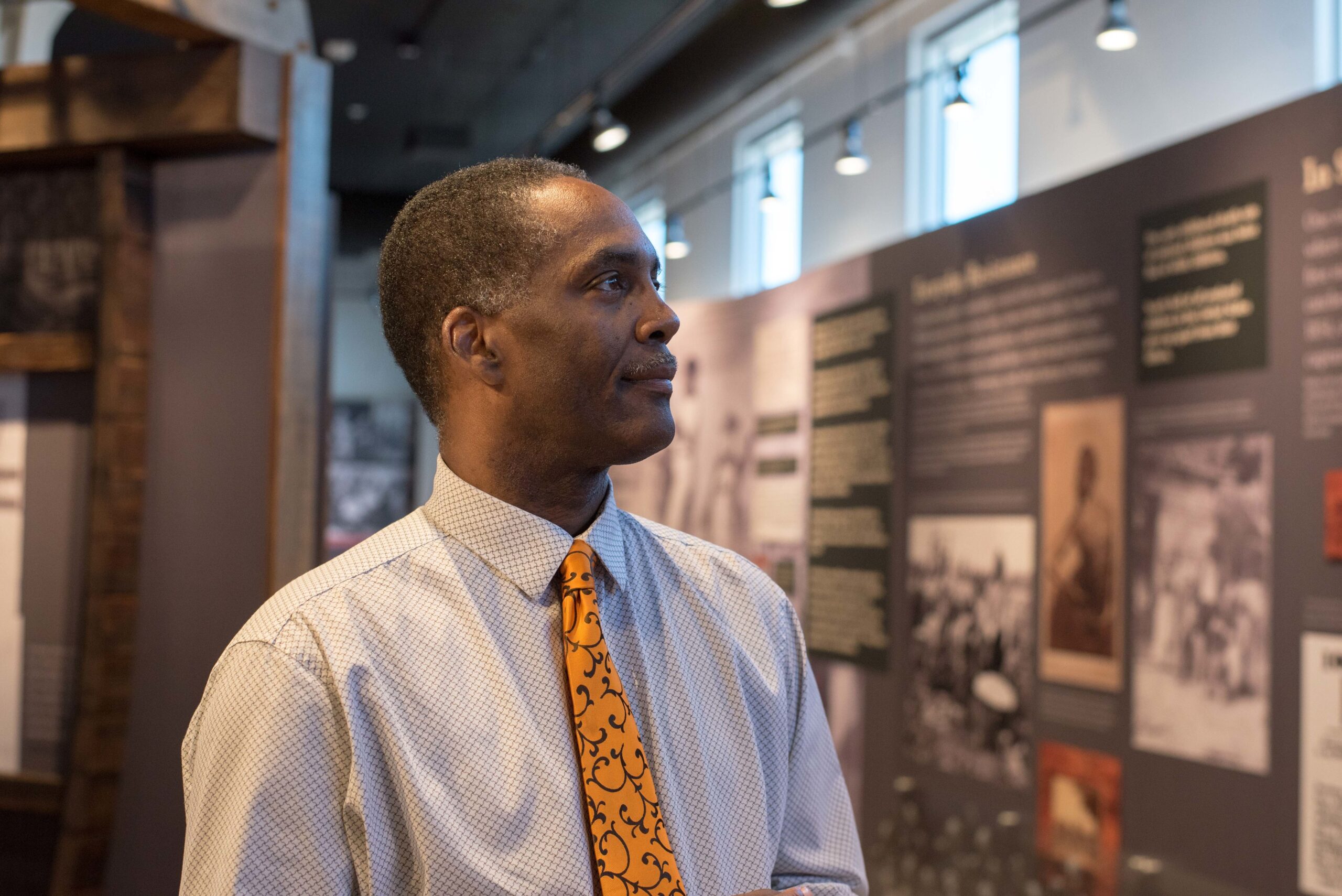
Leading The Way On Reparations
There is no consensus on what reparations would look like — or whether such a program is even warranted or feasible. Would it be federal or local? Would it be a check with no strings? Or indirect, like investing in schools and Black community programs? Should it go to all Black Americans or just those whose ancestors were enslaved? What would be done about the racial tensions and jealousies that such a program could spark?
Evanston — home of Northwestern University — approved a plan to use tax money from legal cannabis sales toward housing assistance for Black Evanston residents. The city chose a “restorative housing program” as their first initiative because of targeted acts of redlining, segregation and refusing loans to Black residents, which Evanston engaged in from 1919 to 1969.
Spearheaded by then-Ald. Robin Rue Simmons, the $400,000 program aims to increase Black homeownership and build intergenerational wealth. Qualified residents receive $25,000 toward buying a home, home improvement or mortgage assistance. Simmons left city government and now runs a nonprofit, FirstRepair, that encourages local reparations programs.
In an Aug. 10 Washington Post guest column, Simmons said 16 people have received compensation so far. She said communities should not wait for Congress to enact such a program.
Meleika Gardner, Evanston resident and founder of Evanston Live TV, said the program has successfully opened the country up to a conversation about reparations — something she never thought was possible for Black Americans while growing up. However, what Evanston is doing is not actually reparations, Gardner argued, but an affordable housing program, which she supports.
Gardner believes that the housing program alone is insufficient to be called reparations, and that Black residents should also be receiving cash payments.
“That’s like someone murdering your family, destroying your house, destroying your car, and then walking up to you, tossing you a quarter, and saying, ‘Well, here, this is a start,’” Gardner said.
Despite some community pushback along these lines, the reparations program passed 8-1 on March 22. During the City Council meeting, Simmons said this is just a first step.
“But we all know the road to repair injustice in the Black community is going to be a generation of work,” Simmons said. “It’s going to be many more initiatives, programs and more funding. What I am excited about is the new engagement, the new interest in what we’re doing.”
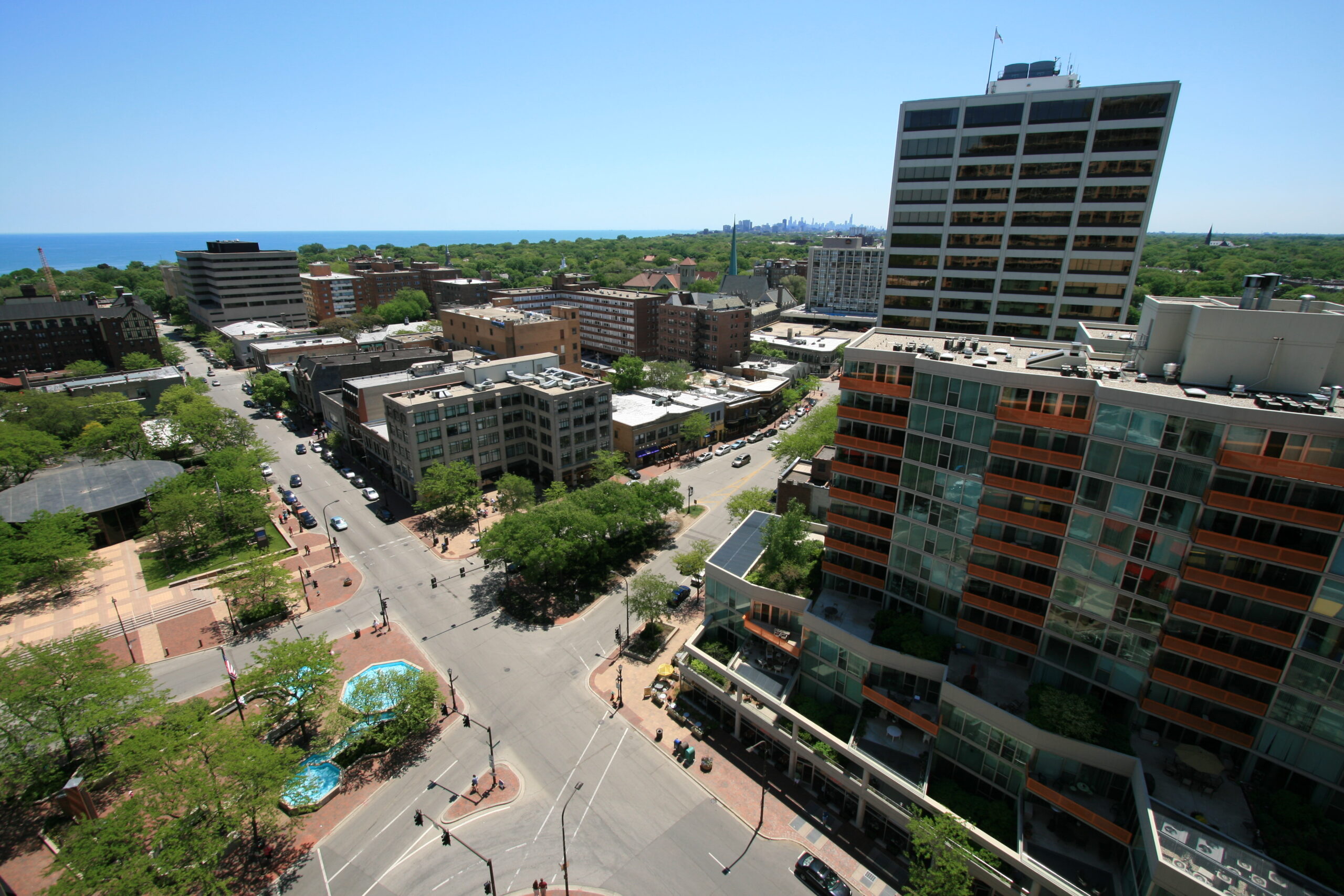
National Conversation Restarts
While Evanston is thought to be the first U.S. city to pass a reparations program, the conversation regarding reparations for Black Americans is not new.
In 1989, Democratic U.S. Rep. John Conyers Jr. of Michigan introduced HR 40, a bill to establish a reparations commission that would study the lasting effects of slavery, public and private discriminatory practices and “lingering negative effects” on present African American residents.
It was controversial, and it has never moved out of the House. But, over the past few years, reparations have moved into the political mainstream — and the bill itself is gaining new momentum.
Works including The Atlantic article, “The Case for Reparations” by Ta-Nehisi Coates and calls for study of the issue from then-Democratic primary candidates Sen. Cory Booker and Sen. Kamala Harris, now the vice president, helped reignite attention to reparations.
In early 2021, Democratic Rep. Sheila Jackson Lee of Texas reintroduced HR 40, taking over as the bill’s sponsor from Conyers, who died in 2019.
In a statement on the hearing of the bill in 2019 — held on Juneteeth and during the 400th anniversary of American slavery — Lee explained that one of the goals of a reparations process is to show Americans how the past actions of the country still affect the Black community.
“Consequently, the reparations movement does not focus on payments to individuals, but to remedies that can be created in as many forms necessary to equitably address the many kinds of injuries sustained from chattel slavery and its continuing vestiges,” Lee said.
The recent reignition of the reparations movement has gotten the attention of Congress. On April 14, the House Judiciary Committee voted to move forward with HR 40, which would establish a commission to study the effects of slavery and recommend “appropriate remedies” to the Congress. It concluded with a 25-17 first ever vote on reparations in Congress.
Lee said the reparations movement should not only focus on payments. “We’re asking for people to understand the pain, the violence, the brutality … of what we went through,” she said.
It is unclear when the bill would move to a full House vote.
In May, Democratic Rep. Hank Johnson of Georgia introduced a bill that would allow survivors and descendants of the 1921 Tulsa, Oklahoma Race Massacre to seek reparations through the courts more easily. A white mob slaughtered up to 300 African-American people and burned 1,200 buildings.
The recent COVID-19 stimulus programs could serve as a template for how the U.S. could compensate the descendants of enslaved people, said William Darity Jr., Duke University economics professor, and A. Kirsten Mullen, folklorist, married authors of the pro-reparations book, From Here to Equality, during a recent webinar.
The type of plan advocated by Darity and Mullen would require the federal government to allocate about $800,000 to an eligible Black household, for a total cost upwards of $10 trillion. Though this is a significant amount of money, the two argue that it is warranted given the drastic inequality that persists today, as Black families have an estimated one-tenth of the wealth on average as white families.
Milwaukee Epicenter Of Inequality
That inequality is especially pronounced in Wisconsin’s largest city.
Milwaukee has among the worst gaps between white and Black residents regarding the standard of living, according to a 2020 study by the University of Wisconsin-Milwaukee Center for Economic Development.
On a variety of measures ranging from income and health to homeownership and educational attainment, Milwaukee is the fourth-worst major city for Black people in the nation, but the 18th best for white people, center director Marc Levine told Wisconsin Watch.
Ald. Khalif Rainey, who represents Milwaukee’s 7th District, said that while a reparations program hasn’t been explicitly broached by his colleagues on the city council — or by any Wisconsin politicians for that matter — he believes something needs to be done. These deep disparities bring down not just Black residents of Milwaukee or Wisconsin, but everyone here, he said.
“We’re basically operating like, as a handicap team,” Rainey said. “We’re so focused on relegating and subjecting a particular group of our own membership to a lower quality of life.”
Rainey said investing in Black communities is in itself a type of reparations. That is something he has tried to do through the Office on African American Affairs in Milwaukee. Rainey described it as a hub for Black Milwaukeeans to get assistance and information about resources such as education and workforce development programs.
But Rainey warned that anything akin to reparations would likely face stiff resistance in Milwaukee.
“This is one of the more racist cities in the country, one of the more segregated cities in the country, and definitely a community where African Americans are suffering more than other communities across the country,” he said.
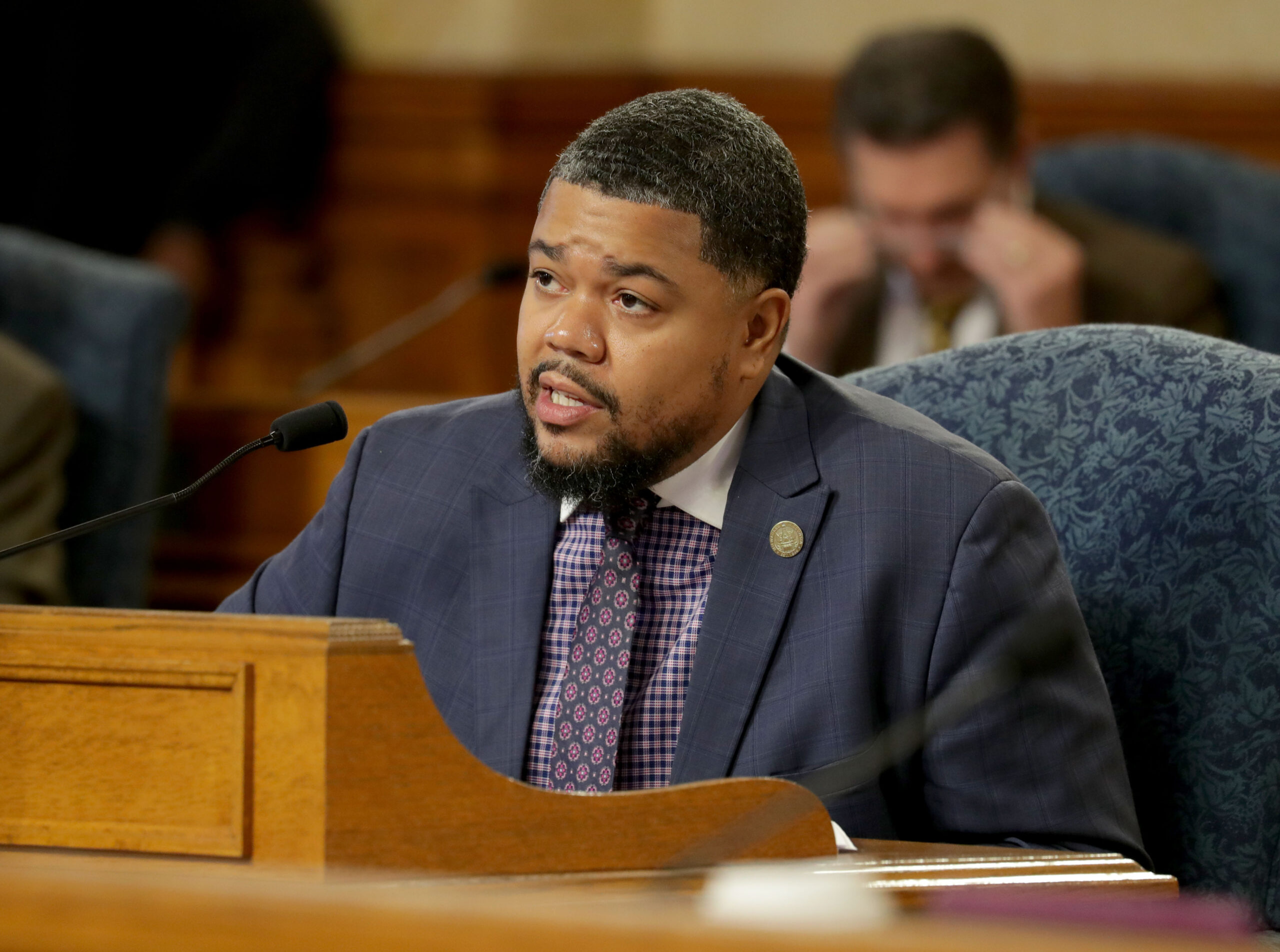
Passing a reparations program would be a political challenge, but the U.S. has done it before. The Civil Liberties Act of 1988 was a form of reparations given to residents of Japanese descent held in internment camps during World War II.
From 1942 to 1945, the federal government incarcerated around 120,000 people of Japanese descent in internment camps during the United States’ war with Japan. In 1983, the Commission on Wartime Relocation and Internment of Civilians (CWRIC) published a report condemning the United State’s actions, calling it the result of “race prejudice, war hysteria, and a failure of political leadership.”
Congress later formally acknowledged the injustice, apologized to those affected and their descendants, and compensated those who had been interned with $20,000 payments each. (In the same bill, members of the Aleut tribe who were forcibly removed from Alaskan islands during the war also were compensated with $12,000 individual payments.)
Views On Reparations Mixed
But the sheer cost of compensating African American residents damaged by hundreds of years of slavery, racism and discrimination is sure to spark opposition.
From 2019 to 2020, the number of Black Americans in support of reparations increased from 65 percent to 84 percent, according to a survey by Democracy in Color, an organization focused on race and politics. Support among white Americans — who make up the majority of U.S. residents — is rising but still far below half, the poll found. In 2019, 23 percent of white residents polled said they favored reparations, rising to 39 percent in 2020, the poll found.
Darity and Mullen point to the trillions of dollars sent to Americans to blunt the impact of the COVID-19 pandemic as proof that the United States can find the money for reparations — if it chose to.
“We know that either through the U.S. Treasury or through the Federal Reserve we have the ability to create a reparations program for Black American descendants of folks who were enslaved here,” Mullen said. “We just need the will to do it.”
But reparations face a steep climb in Congress. Then-Senate Majority Leader Mitch McConnell flatly rejected reparations in 2019 when a reporter asked how he saw such a program playing out.
“I don’t think reparations for something that happened 150 years ago for whom none of us currently living are responsible is a good idea,” McConnell said.
To him, America made up for its “original sin,” as he called it, by fighting in the Civil War, passing civil rights legislation and by electing an African-American president.
For Reggie Jackson, who can trace his ancestry back to 1792, reparations would put right a longstanding wrong.
He favors investment and funding of Black communities — and payments to individuals who face continual harm from generations of subjugation and discrimination.
“I talk to white people about why they are so far ahead of Black people,” Jackson said. “I say ‘You’re not far ahead because of your Protestant work ethic or because you’re smarter and you make better decisions. You’re further ahead because the federal government is hooking you up time and time and time again, giving you access to these things that help to build generational wealth, and denying those same opportunities for Black people consistently, over a very, very, very long period of time.’”
This story was produced as part of an investigative reporting class at the University of Wisconsin-Madison School of Journalism and Mass Communication under the direction of Dee J. Hall, Wisconsin Watch’s managing editor. The nonprofit Wisconsin Watch (www.WisconsinWatch.org) collaborates with WPR, PBS Wisconsin, other news media and the UW-Madison School of Journalism and Mass Communication. All works created, published, posted or disseminated by Wisconsin Watch do not necessarily reflect the views or opinions of UW-Madison or any of its affiliates.
